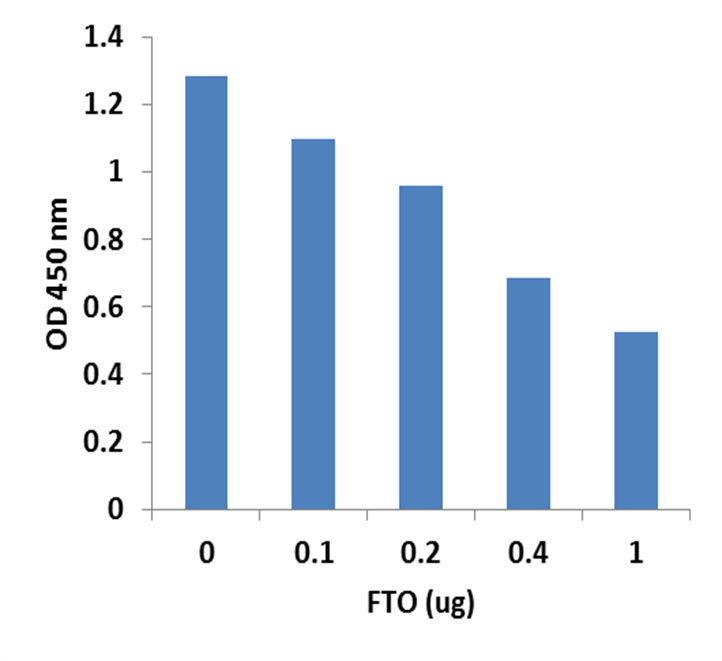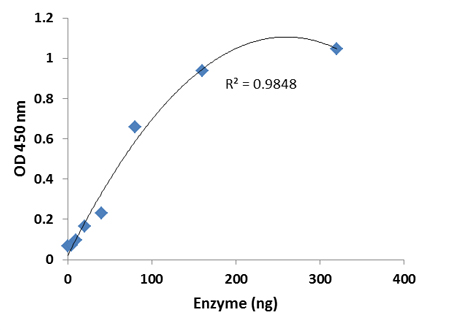Epigenase™ m6A enzyme assays are ELISA-based methods for measuring the total activity/inhibition of m6A methylases or demethylases from both purified enzyme and nuclear extract samples.
The Epigenase™ technology allows for direct measurement of m6A enzyme activity via a straightforward detection of enzyme-converted end products, making the assays much more specific than by-product measurement. Assay standards are included for enzyme activity quantification, and the strip-well microplate format provides assay flexibility for manual or high-throughput analysis.
EpigenTek delivers all-in-one resources to support and streamline your RNA methylation activity/inhibition studies:
- Explore the Basics: Learn the fundamentals of RNA Methylation Activity/Inhibition
- Additional Resources: Explore our detailed overview and supporting materials
- Technical Hub: Find FAQs, troubleshooting solutions, and optimization guides in our centralized support center




 Cart (0)
Cart (0)










